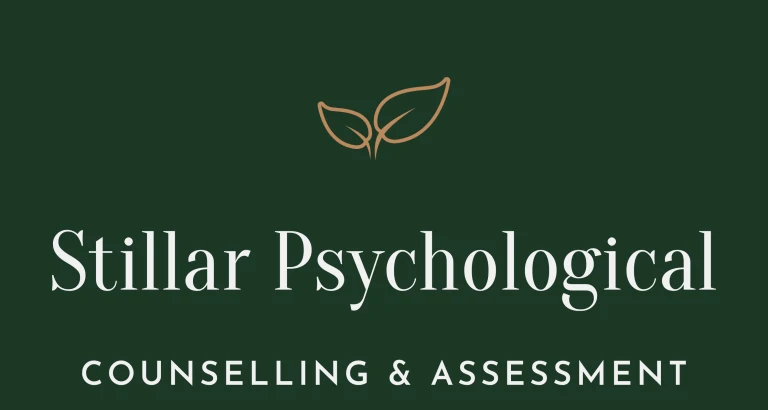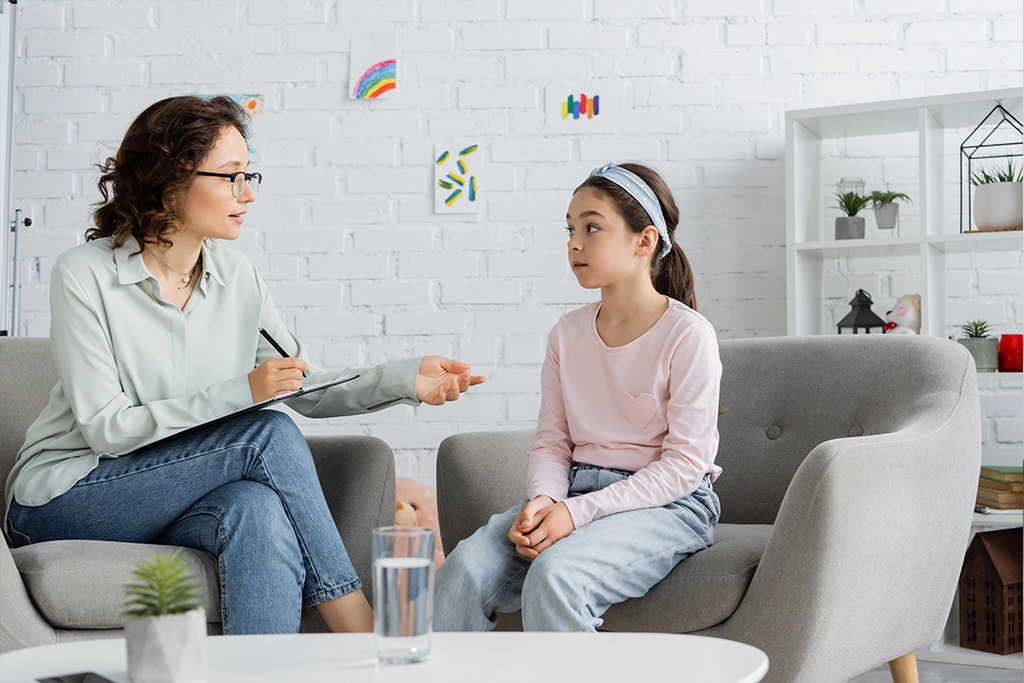Relationships can be a source of immense joy and fulfillment, but they can also bring about significant stress and anxiety. Understanding whether your concerns stem from relationship anxiety or not in love can be a factor in addressing and overcoming these feelings. At Stillar Psychological, we are committed to helping you manage these complex emotions and create healthier relationships through our client-centered approach.
Handling the emotions of a relationship can be incredibly challenging. Feelings of doubt and insecurity can creep in that leave you questioning the very foundation of your bond. This turmoil is often more complex than it initially appears, intertwining deeply with past experiences, personal insecurities, and inherent attachment styles.
We understand that these feelings can be overwhelming. Hence, our goal is to provide you with the clarity and support needed to overcome them. The distinction between relationship anxiety and not being in love is subtle yet important. Misinterpreting these feelings can lead to unnecessary stress and even the dissolution of a relationship that has the potential to be healthy and fulfilling.
We utilize evidence-based techniques and a personalized approach to help you understand your emotions better. By doing so, we enable you to make informed decisions about your relationship and your emotional well-being.
Understanding Relationship Anxiety
Relationship anxiety is a feeling of worry, insecurity, or doubt that arises within a romantic relationship. This anxiety can manifest in various ways, such as constantly questioning your partner’s feelings, fearing rejection, or needing excessive reassurance. While occasional doubts are normal, persistent anxiety can strain the relationship and impact your overall mental and emotional health.
We often see clients grappling with these issues, and our goal is to help you differentiate between relationship anxiety and other emotional concerns. It’s important to recognize that experiencing relationship anxiety doesn’t necessarily mean you’re in a bad relationship. Often, these feelings are rooted in past experiences, attachment styles, or low self-esteem.
Relationship anxiety can also affect your daily life and interactions. You might find it difficult to focus on work, social activities, or hobbies because your mind is preoccupied with doubts about your relationship. This pervasive anxiety can lead to physical symptoms such as headaches, fatigue, or sleep disturbances. Understanding these broader impacts is essential in addressing and managing relationship anxiety effectively.
Furthermore, relationship anxiety can lead to a cycle of negative interactions within the relationship. As your anxiety increases, you might become more clingy, jealous, or critical. In turn, this can create tension and conflict with your partner. Recognizing this cycle and working to break it is an important step toward healthier relationship dynamics. At Stillar Psychological, we are here to guide you through this process with empathy and expertise.
How Relationship Anxiety Develops
Relationship anxiety often stems from a combination of past experiences, attachment styles, and personal insecurities. These factors interact in complex ways and may lead to feelings of worry, doubt, and fear within romantic relationships.
Early life experiences play a significant role in shaping how we perceive and engage in relationships. For instance, individuals who experienced inconsistent or unavailable caregiving during childhood may develop an anxious attachment style. This attachment style is characterized by a fear of abandonment and a constant need for reassurance from partners. These early experiences create a template for future relationships that makes it difficult to feel secure and confident in romantic connections.
Additionally, past relationship experiences can significantly impact current relationship dynamics. If you’ve been hurt, betrayed, or abandoned in previous relationships, you might carry these wounds into your current relationship. This can manifest as hypervigilance which causes people to constantly look for signs of potential issues, or become overly dependent on your partner for validation and security. These behaviors are driven by past trauma and can perpetuate a cycle of anxiety and tension.
Personal insecurities and low self-esteem are also critical factors in the development of relationship anxiety. When you doubt your worth or believe that you are not good enough for your partner, it can lead to constant worry about the stability of your relationship. These insecurities can cause you to seek excessive reassurance, misinterpret your partner’s actions, and feel threatened by external factors, such as your partner’s friendships or hobbies.
Signs That Indicate Relationship Anxiety
One of the most challenging aspects of relationship anxiety is recognizing the signs and understanding their root causes. You might find yourself constantly wondering if you matter to your partner, seeking their reassurance repeatedly, or worrying that they might leave you. These thoughts can be distressing and may prevent you from fully enjoying your relationship.
For instance, you might feel uneasy when your partner spends time with friends or family without you, or if they don’t immediately respond to your messages. You might also experience jealousy without any clear cause, leading to unnecessary conflicts. It’s not uncommon for individuals with relationship anxiety to self-sabotage by creating distance or picking fights over small issues.
Other signs of relationship anxiety include overthinking your partner’s words and actions. You might read too much into harmless comments or behaviors, assuming they indicate a lack of interest or affection. This constant analysis can be exhausting and prevent you from enjoying the positive aspects of your relationship. Recognizing these patterns is the first step toward addressing relationship anxiety.
Additionally, relationship anxiety often manifests as a constant need for reassurance. You may frequently ask your partner if they still love you or if everything is okay between you. This need for constant validation can be draining for both partners and can strain the relationship over time. At Stillar Psychological, we help you develop healthier ways to seek and give reassurance, fostering a more balanced and secure relationship.
The Root Causes of Relationship Anxiety
To effectively address relationship anxiety, it’s essential to explore its underlying causes. One significant factor is attachment style, which is formed during infancy and childhood. Individuals with an anxious attachment style often fear abandonment and constantly seek reassurance from their partners. This attachment issue can create a cycle of anxiety and insecurity. This can make it challenging to maintain a stable relationship.
Previous relationship experiences also play an essential role. If you’ve been hurt or betrayed in the past, you might be on guard, expecting similar patterns to repeat in your current relationship. This can lead to overanalyzing your partner’s actions and seeking constant validation. Understanding these past influences can help you break free from negative patterns and build a healthier relationship dynamic.
Additionally, an unhealthy partner can exacerbate your relationship anxiety. Partners with narcissistic tendencies, substance abuse issues, or manipulative behaviors can make you feel undervalued and insecure. This toxic dynamic often fuels anxiety and makes it difficult to build trust. Identifying these harmful influences and addressing them with professional support can significantly improve your emotional well-being and relationship health.
Low self-esteem and poor communication are other critical factors. When you doubt your worth, you might constantly worry about being good enough for your partner. Similarly, a lack of clear and consistent communication can leave you feeling uncertain about your partner’s feelings and intentions, increasing anxiety. At Stillar Psychological, we strive to help you develop stronger self-esteem and effective communication skills to enhance your relationship’s stability and satisfaction.
Relationship Anxiety or Not In Love: How To Differentiate
Determining whether your feelings are due to relationship anxiety or not in love can be challenging. Relationship anxiety often involves constant doubt and worry, even when there is no apparent reason for concern. These feelings are usually rooted in fear and insecurity rather than the actual dynamics of the relationship.
On the other hand, not being in love involves a lack of connection, affection, and interest in your partner. You might feel indifferent or disconnected, and the idea of a future together might not excite you. If your feelings lean more towards indifference rather than fear, it might be a sign that you are not in love. Recognizing this difference is important for making informed decisions about your relationship. By exploring your emotions in a supportive environment, you can gain clarity and confidence in your relationship decisions.
In addition, we encourage self-reflection and open communication with your partner. Discussing your feelings openly can provide insights into your emotional state and help you determine whether your concerns are based on anxiety or a genuine lack of love. This collaborative approach can strengthen your relationship and provide a clearer path forward, whether that means working through the anxiety or making the difficult decision to part ways.
Addressing and Overcoming Relationship Anxiety
Overcoming relationship anxiety involves a varied approach. One effective strategy is to identify what is driving your anxiety. Is it fear, low self-esteem, or past trauma? Understanding the root cause can help you address these issues more effectively.
It’s also important to recognize that while your feelings are valid, your thoughts might not always reflect reality. Relationship anxiety can lead to cognitive distortions, where you misinterpret your partner’s actions or words. Challenging these negative thoughts with evidence and logic can help you gain a more balanced perspective. Techniques such as cognitive restructuring can be particularly helpful in this regard.
Communication is key in any relationship. Being honest about your feelings with your partner can build understanding and support. It’s also essential to practice active listening, which can help you avoid jumping to conclusions and misinterpreting your partner’s intentions.
Self-soothing techniques, such as deep breathing, meditation, and mindfulness, can help manage the physical symptoms of anxiety. Building trust with supportive people and addressing conflicts healthily are also vital steps in overcoming relationship anxiety. Additionally, engaging in regular self-care activities and maintaining your individuality can also bolster your emotional resilience and reduce anxiety.
Building a Stronger Relationship
Building a stronger relationship involves more than just addressing anxiety. It requires ongoing effort and commitment from both partners. We emphasize the importance of mutual respect, trust, and open communication. These elements are foundational to any healthy relationship and can significantly reduce the impact of anxiety.
Focusing on positive interactions and expressing appreciation for your partner can also strengthen your bond. Rather than dwelling on anxieties, shift your focus to the positive aspects of your relationship. Regularly expressing gratitude and acknowledging your partner’s efforts can create a more positive and supportive dynamic.
Engaging in shared activities and hobbies can also enhance your connection. Spending quality time together, exploring new interests, and creating shared memories can reinforce your bond and provide a buffer against anxiety. We encourage couples to find joy in their shared experiences and build a relationship based on mutual enjoyment and support.
The Role of Professional Support
Sometimes, relationship anxiety can be overwhelming, and professional support might be necessary. Therapy can provide a safe space to explore your feelings and develop coping strategies. At Stillar Psychological, we offer various therapeutic services, including individual counseling and couples therapy to help you manage relationship anxiety.
Our experienced psychologists use evidence-based approaches to help you understand your anxiety and build healthier relationships. We also offer assessments to identify any underlying issues contributing to your anxiety. If you’re struggling with relationship anxiety, don’t hesitate to seek professional support. Our goal is to provide you with the tools and strategies needed to improve your emotional well-being and relationship satisfaction.
Professional support can also help you and your partner develop better communication and conflict-resolution skills. By working with a therapist, you can learn to express your needs and concerns more effectively and respond to each other with empathy and understanding. This collaborative approach can significantly improve your relationship dynamics and reduce anxiety.
Preventing Relationship Anxiety
Preventing relationship anxiety involves proactive efforts to maintain a healthy and balanced relationship. We recommend regular check-ins with your partner to discuss your feelings and any concerns. These conversations can help you address issues before they escalate and provide an opportunity for mutual support.
Building a strong foundation of trust and respect is also vital. By being consistent, reliable, and honest with each other, you can create a stable and secure relationship environment. This foundation can help prevent the development of anxiety and provide a sense of safety and comfort in the relationship.
Additionally, maintaining your individuality and personal interests is essential. While it’s important to spend quality time together, it’s equally important to have your own hobbies, friendships, and activities. This balance can help you feel more fulfilled and reduce the likelihood of developing anxiety due to over-dependence on the relationship.
The Impact of Relationship Anxiety on Mental Health
Relationship anxiety doesn’t just affect your romantic life; it can also have significant implications for your overall mental health. Persistent anxiety can lead to feelings of depression, low self-esteem, and even panic attacks. When you are constantly worried about your relationship, it can become difficult to concentrate on other areas of your life, such as work, social activities, and personal goals. This pervasive anxiety can create a cycle where your mental health deteriorates and further exacerbates your relationship concerns.
We understand the profound impact that relationship anxiety can have on your well-being. Our approach integrates mental health support with relationship counseling to address the root causes of your anxiety. We offer inclusive assessments to identify any co-occurring mental health issues and provide personalized treatment plans to help you manage your anxiety and improve your overall mental health. By addressing both your relationship concerns and broader mental health needs, we aim to help you achieve a balanced and fulfilling life.
Managing mental health alongside relationship anxiety often involves developing healthy coping mechanisms. Techniques such as mindfulness, meditation, and regular exercise can help reduce anxiety levels and improve your emotional resilience. Additionally, building a strong support network of friends, family, and professionals can provide you with the encouragement and assistance you need during difficult times.
Building Long-Term Resilience in Relationships
Building long-term resilience in relationships requires ongoing effort and commitment from both partners. Resilience involves the ability to navigate challenges, adapt to changes, and grow stronger together over time. One key aspect of resilience is maintaining open and honest communication. Regularly discussing your feelings, needs, and concerns with your partner can help prevent misunderstandings and build a deeper connection.
We emphasize the importance of continuous learning and growth within relationships. This might involve attending workshops or therapy sessions to enhance your relationship skills, reading books on relationship dynamics, or seeking advice from trusted mentors. By actively working on your relationship, you can develop the tools and strategies needed to overcome challenges and build a stronger, more resilient bond.
Another critical component of building resilience is fostering a sense of mutual respect and support. This involves recognizing and appreciating each other’s strengths and contributions to provide emotional and practical support during difficult times. By building a foundation of trust, respect, and support, you can create a relationship that is capable of weathering any storm.
In addition to professional support, practicing self-care and maintaining a balanced lifestyle are vital for long-term relationship resilience. Making sure that both partners have time for individual interests, self-reflection, and personal growth can strengthen the relationship by bringing new perspectives and experiences into the partnership. At Stillar Psychological, we encourage couples to view self-care not as a selfish act, but as a necessary component of a healthy and resilient relationship.
Recognizing the signs of relationship anxiety and understanding whether it’s love or something else is essential for maintaining a healthy and fulfilling relationship. By identifying the root causes of your anxiety and addressing them through effective strategies and professional support, you can build a more secure and confident relationship.
At Stillar Psychological, we are dedicated to helping you face these challenges and improve your emotional well-being. Whether you need individual counseling, couples therapy, or psychological assessments, we are here to support you every step of the way. If you’re experiencing relationship anxiety, we encourage you to reach out to us for help. Together, we can work towards a happier and healthier relationship. For personal assessments and to schedule an appointment, visit our Assessment Center or book online today.





















